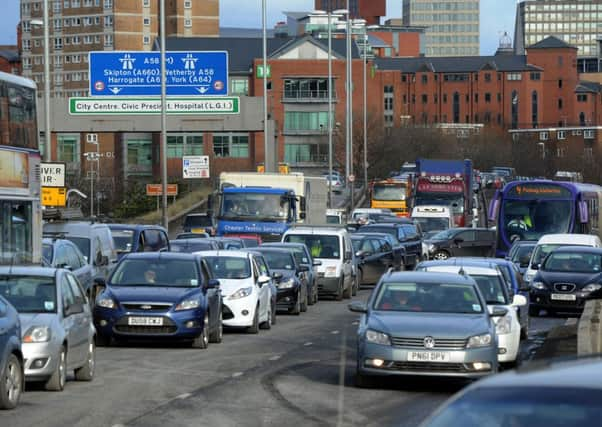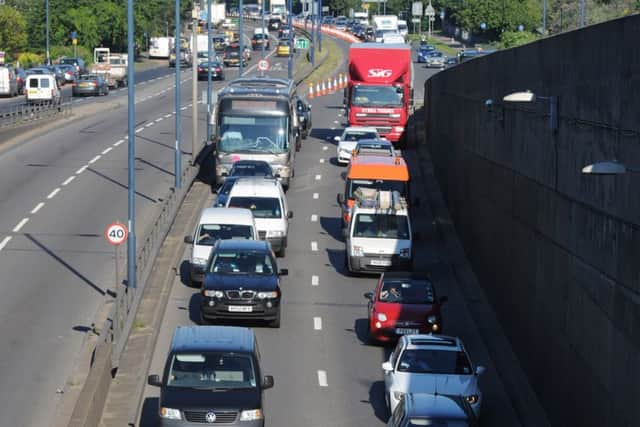Gridlock costing country billions


The study, published today, looks at the impact of congestion in the UK’s largest 18 urban areas, including Bradford and Leeds, Hull and Sheffield.
It found the average driver in these areas spends 40 hours a year stuck in traffic jams while in London the figure was twice as high.
Advertisement
Hide AdAdvertisement
Hide AdCongestion in the capital accounted for £2bn of the overall annual £4.4bn cost, according to the report by traffic information company Inrix and the Centre for Economics and Business Research (Cebr) .


The overall national cost was made up from three different figures – first, the cost of fuel wasted, which was £441m or £53 per household; secondly, the direct cost to the economy of commuter time wasted in traffic jams, which was said to be £2.79bn; and, finally, the indirect cost to household through higher bills, which was said to be £1.19bn, or £108 per household.
The household bills figure was compiled from higher freight and business fees as a result of company vehicles being stuck in traffic, with the additional costs being passed on to households.
The report says: “In the UK more than 70 per cent of the workforce commutes to work by car during peak times, with the average British driver spending 40 hours stuck in gridlock annually.
Advertisement
Hide AdAdvertisement
Hide Ad“This congestion has both a direct and indirect impact on car commuting households.
“The time spent idling in traffic rather than being productive at work, as well as the fuel burned, can weigh heavily on the driver’s wallet.
“Indirectly, higher freighting and business fees as a result of company vehicles being stuck in traffic can pass on additional costs to household bills.”
As well as London, the urban areas in the study included Belfast, Birmingham, Bradford-Leeds, Bristol, Cardiff, Coventry, Edinburgh and Glasgow. The rest of the areas were Hull, Leicester, Liverpool, Manchester, Newcastle upon Tyne, Nottingham, Portsmouth, Sheffield and Stoke-on-Trent.
Advertisement
Hide AdAdvertisement
Hide AdInrix’s European director, Matt Simmons, said: “Millions commute to work by car every day and these findings expose the significant economic impact gridlock is having on the UK economy.
“Congestion is reducing productivity, leaving commuters with higher bills and less time, as well as damaging the environment.
“With debates around HS2 and the UK’s transport infrastructure, it is time to take action. By utilising ‘big data’ to make sense of traffic intelligence on vehicle movement, bottlenecks and congestion, Britain can address the challenges facing its road network and the millions that depend upon it.”
The report attempts to measure the environmental cost of congestion and reveals that every year vehicles idling in traffic in the UK, France and Germany release 1,894 kilotons of CO2, the equivalent to the carbon footprint of 120 thousand households. Offsetting this pollution would require planting 189 million broad leaf trees covering 767 thousand square metres, equivalent to an area half the size of Greater London.
Advertisement
Hide AdAdvertisement
Hide AdMr Simmons said: “These findings demonstrate a clear economic and environmental case for the UK to harness the use of traffic data to plan, manage and tackle the problem of congestion, which is not only putting pressure on individual households who are struggling to make ends meet, but also costing billions to the economy.
“Looking at these challenges in a more intelligent way to tackle the issue of congestion could help to trigger growth in the UK economy.